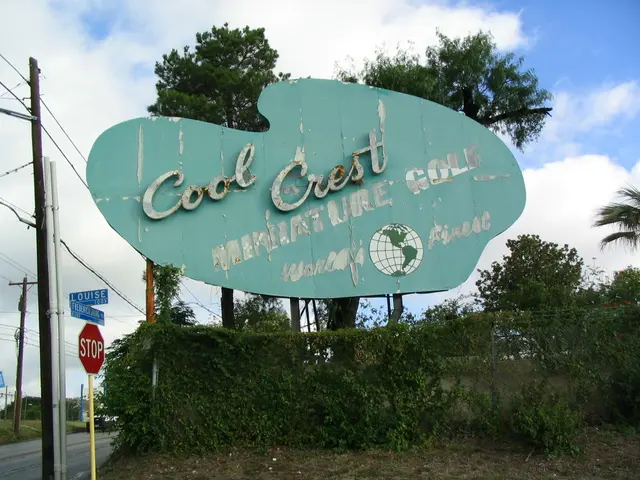Appointment of David Kennedy as the new CEO at SBTi confirmed
In a recent development, David Kennedy has been appointed as the new CEO of the Science Based Targets initiative (SBTi), following an internal dispute over the use of carbon offsets. Kennedy, who previously served as Director General of Food, Biosecurity, and Trade at the UK's Department for Environment, Food, and Rural Affairs (Defra), has a wealth of experience in climate strategy and policy-making.
Kennedy's tenure at Defra saw him lead on food strategy, including net-zero and nature, food security, and farming reform. Prior to his role at Defra, Kennedy held key positions at the World Bank and the European Bank for Reconstruction and Development (EBRD). He also earned a PhD in economics from the London School of Economics.
Under Kennedy's leadership, the UK's Committee on Climate Change (CCC) designed sector pathways, carbon budgets, targets, metrics, milestones, and key policies for the nation's net-zero transition.
The controversy at SBTi revolved around the proposal to accept carbon offsets as a means to mitigate Scope 3 emissions. This proposal was criticized for allowing major corporations to greenwash their carbon footprints without reducing emissions. Dr Luiz Amaral, the previous CEO, who suggested that companies don't have control over certain scope 3 emissions and therefore could not eliminate them without offsets, resigned last July due to this internal dispute.
The row over carbon offsets at SBTi was met with a fierce backlash by some SBTi staff, with some calling for Dr Amaral's resignation. However, the future of carbon credits in institutional portfolios remains strong and growing, driven by increasing corporate net-zero commitments, market expansion, and evolving portfolio strategies.
Institutions are integrating carbon credits as a distinct asset class, with benefits such as low correlation to traditional assets, inflation hedging, and regulatory risk mitigation. Strategic allocations focus on high-integrity projects with co-benefits like biodiversity, while also emphasizing robust manager selection, impact measurement, and risk management frameworks.
Key developments shaping this outlook include market growth, portfolio integration, transition risk management, market innovation, and compliance market evolution. The carbon credit market reached $114.8 billion in 2024 and is projected to grow to $474.2 billion by 2034.
The SBTi controversy has not derailed institutional appetite for carbon credits but rather elevated scrutiny, pushing investors towards higher-quality, transparent carbon asset opportunities and more rigorous measurement frameworks. Institutions positioned early with robust strategies stand to gain both financial returns and leadership in climate finance.
Sue Jenny Her has served as the interim CEO of SBTi for six months, and her tenure has been marked by a focus on transparency and rigour in the carbon credit market. With Kennedy's appointment, the SBTi is poised to continue its work in driving corporate action on climate change and promoting the use of high-quality carbon credits in institutional portfolios.
[1] Carbon Pulse, "Carbon Markets 2025: A Global Review," 2025. [2] McKinsey & Company, "Investing in Carbon Credits: A Guide for Institutions," 2023. [3] PwC, "Climate Risk and Opportunity: Managing the Transition to a Low-Carbon Economy," 2022. [4] Nature, "Carbon Removal: The Role of New Technologies and Methodologies," 2024. [5] International Carbon Action Partnership, "Compliance Carbon Markets: A Global Overview," 2023.
- As the new CEO of the Science Based Targets initiative (SBTi), David Kennedy will leverage his extensive experience in climate strategy and policy-making, including his time at the World Bank and the European Bank for Reconstruction and Development (EBRD), to continued focus on promoting the use of high-quality carbon credits in institutional portfolios, aligning with the global trend of integration of carbon credits as a distinct asset class in investment strategies.
- Kennedy's background in environmental science, evidenced by his previous role as Director General of Food, Biosecurity, and Trade at the UK's Department for Environment, Food, and Rural Affairs (Defra), coupled with his economic understanding from a PhD in economics from the London School of Economics, equips him to strategically position the SBTi in the evolving carbon credit market, where institutions are increasingly integrating carbon credits for benefits like low correlation to traditional assets, inflation hedging, and regulatory risk mitigation.





